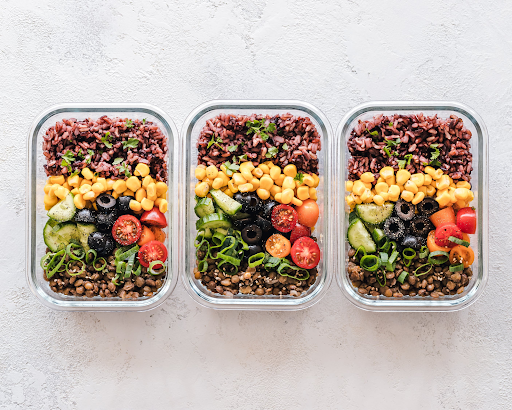

THESE 3 DIETS HAVE BEEN SCIENTIFICALLY PROVEN TO WORK

Dieting has evolved from a fad to a necessity. What and how much you eat dictates lifelong health. A lot of studies have been conducted on the validity and long-term efficacy of many diets. The common factor is that experts widely accept that fresh and mixed diets are the best. There haven’t been a lot of comparative studies conducted which makes it difficult for us to pit different diets against each other. Everyone has different dietary requirements and metabolic rates; the best way to choose the diet that works for you is to consult a dietician or nutritionist. Drs Katz and Mellers from Yale University assert that “A diet of minimally processed foods close to nature, predominantly plants, is decisively associated with health promotion and disease prevention and is consistent with the salient components of seemingly distinct dietary approaches.” In this article, we explore the best diets which have been proven by science to work.
1. Mediterranean Diet
The Mediterranean Diet is the eating pattern inspired by South European countries. A lot of studies have shown that the Mediterranean Diet is very effective for preventing the emergence of cardiovascular and cognitive diseases. Mediterranean Diet focuses on plants and natural unsaturated fats as the main source of calories. Preference for fresh fruits and vegetables along with grains, nuts, beans, lentils, etc., and unprocessed food with preserved nutrients is necessary. Vegetables are consumed in three to nine servings per day. The main sources of animal protein are poultry (chicken or turkey) and fatty fishes such as salmon, mackerel, and sardines which contain omega-3- fatty acids which promote cardiovascular health. Red meat is consumed in limited quantities, only once or twice a month. Cheese, yogurt, and dairy are consumed in moderation with every meal. Desserts are usually avoided and instead replaced by fresh fruits daily.
The main source of unsaturated fat is olive oil, preferably virgin olive oil which retains all the nutrients. Mediterranean diet provides all essential nutrients whilst maintaining a healthy calorie limit. Fruits and vegetables supply a lot of vitamins and micro/macronutrients. A plant-based diet lacks vitamin B12 which is supplied by lean meat (fish and poultry). The Mediterranean Diet is also very rich in antioxidants which help in eliminating metabolic free radicals. This diet is very flexible as nearly everything is allowed but in moderation and why it has met with such long-term success. It is easy to follow and financially friendly too.
2. DASH Diet
Dietary Approaches to Stop Hypertension (DASH) is a diet specially designed to help people with hypertension or people who might get it in the later stages of life. It lowers blood pressure and just like the Mediterranean diet, gives a lot of importance to plant-based nutrition. The DASH diet’s main aim is to restrict the consumption of fat and sodium. DASH is not a short-term diet; it usually continues throughout the person’s lifetime and it is not very flexible. For those following the low sodium DASH diet, the daily sodium consumption has to be limited to 1,500 mg/day and for the standard DASH diet, the maximum sodium consumption limit is 2,300 mg/day.
The main components of the DASH diet are fruits, vegetables, low-fat dairy products, whole grains, lean meats, and healthy oils. It concentrates on taking four to five servings of fruits and vegetables every day. Fruits and vegetables are packed with vitamins, fiber, potassium, and magnesium. Skim milk, fat-free yogurt, and other dairy products are major sources of Vitamin D, calcium, and protein. Don’t opt for cheese or eat in dire moderation because it is heavy sodium. Poultry meat, eggs, and fish are the primary sources of B group vitamins, iron, and zinc but their consumption must be limited to 6 ounces a day. Vegetarians can opt for high protein options such as paneer (cottage cheese), tofu, or soybeans. Nuts, seeds, and legumes contain a lot of fiber, healthy fat, and phytochemicals as do whole grains. Remember to not add any salt while cooking your grains and to stay away from highly processed food because they have high sodium content.
3. Flexitarian Diet
Flexitarian diet focuses highly on plant-based meals, unlike veganism it doesn't frown on the consumption of meat or dairy products. The term Flexitarian is an amalgamation of flexible and vegetarian, it is semi-vegetarian. A Flexitarian diet allows the consumption of meat but in moderation, much less than that of DASH or Mediterranean Diet. The rules of the Flexitarian Diet are simple; eat plant-based meals, eat fresh food, eat meat but very rarely, rely on plant-based protein sources, don’t go for preserved foods, limit desserts, and add sugars. It is always easy to plan your meals and decide which meats to incorporate and at what frequency. Constantly cut down on meat and replace the meals with vegetables as the diet progresses. This diet helps bring about gradual but long-last changes to lifestyle. A Flexitarian diet is good for losing and maintaining weight as it decreases the risk of diabetes and cardiac conditions. All the fiber provided by the vegetables, fruits, and legumes will be good for the digestive tract and be easy on the kidneys. However, certain nutrients are not found in high quantities in plants, such as vitamin B12, omega-3-fatty acids, calcium, and zinc. These are found in dairy products and lean meats, which can be consumed in low amounts and dietary supplement medications can be opted to fulfill these nutritional requirements.














